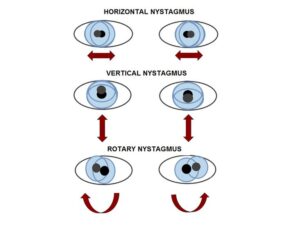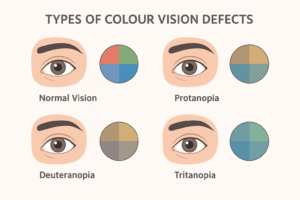
Anushka Super Speciality Eye Hospital
Call: 90044 44422 / 99213 44422 | Timings : 8.30 a.m to 5.30 p.m (Mon-Sat) | Add: Shri Swami Samarth Soc, Kaneri Dhamankar Naka, Bhiwandi




Accredited for Quality Care
The Comprehensive Guide to Contact Lenses: Advantages, Disadvantages, Complications, and Proper Handling
anushka
5 June 2025
Introduction
In today’s fast-paced world, clear vision is more important than ever—whether you’re working, driving, or simply enjoying your favorite activities. For many people, contact lenses have become the go-to solution for vision correction, offering a blend of convenience, comfort, and style that traditional glasses can’t always match. But before you make the switch or continue your journey with contacts, it’s essential to understand both their advantages and the responsibilities that come with them. In this guide, we’ll explore the benefits and drawbacks of contact lenses, highlight potential complications, and share expert advice on safe handling and care to help you keep your eyes healthy and your vision crystal clear.
Advantages of Contact Lenses
- Improved Appearance and Confidence One of the most significant reasons people opt for contact lenses is the aesthetic benefit. Contact lenses are discreet and offer a more natural appearance compared to glasses, which can sometimes be perceived as a fashion statement. Many individuals feel more confident without the obstruction of frames on their face. For those who feel self-conscious about wearing glasses, contacts can help boost self-esteem.
- Wider Field of Vision Unlike glasses, which can obstruct your peripheral vision, contact lenses sit directly on your eyes, providing you with a full, unobstructed field of view This is particularly beneficial for activities like driving, sports, or any other situation where clear, uninterrupted vision is essential.
- More Freedom for Active Lifestyles For individuals who lead active lifestyles or participate in sports, contact lenses are often a better option than glasses. Glasses can slide down your nose, fog up, or break during intense physical activity, Contact lenses, however, stay in place, offering stability and clarity no matter how active you get.
- No Fogging or Rain Disturbances Anyone who has worn glasses knows the frustration of fogging up on a cold day or when entering a warm building. Contact lenses don’t fog. And they also won’t get smudged by rain. They provide consistent vision in a wide variety of conditions.
- Increased Comfort When properly fitted, contact lenses tend to feel less cumbersome than glasses. They don’t leave marks on your nose or temples, and you don’t need to worry about them falling off when you move. For many people, wearing contacts becomes a more comfortable option for daily wear.
- Variety of Types for Different Needs There are various types of contact lenses available, each suited for different vision needs. Whether you need corrective lenses for nearsightedness, farsightedness, astigmatism, or presbyopia, there’s a contact lens out there for you. Additionally, contact lenses come in different materials, including daily, weekly, and monthly disposables.
Disadvantages of Contact Lenses
- Initial Cost While the long-term cost of contact lenses can be comparable to glasses, the initial expense can be higher. You need to consider the cost of the lenses, solution, and Possibly an eye exam, which can add up quickly, especially if you require specialty lenses for conditions like astigmatism or presbyopia.
- Risk of Infection Improper handling and cleaning of contact lenses can lead to eye Infections. Bacteria can build up on the lenses if they’re not cleaned properly, causing eye irritation, dryness, or even more severe issues like corneal ulcers. It’s crucial to follow proper hygiene and care protocols to avoid these risks.
- Dry Eyes Some people may experience dry eyes when wearing contact lenses, especially in environments with low humidity or when staring at screens for prolonged periods. Dry eyes can cause discomfort, redness, and irritation, making it important to select lenses designed for moisture retention or consider using artificial tear drops.
- Limitations on Wear Time Contact lenses, particularly daily disposables or extended- wear lenses, have time limitations. Wearing them too long can increase the risk of discomfort, dryness, or infection. It’s essential to follow your optometrist’s recommendations for how long you should wear them each day.
- Not Suitable for Everyone Certain individuals may not be candidates for contact lenses. People with severe dry eye syndrome, certain eye conditions, or those who have trouble with proper hygiene may find contact lenses challenging or unsuitable for their needs.
- Complex Maintenance Contact lenses require regular cleaning and disinfecting to ensure their longevity and prevent eye infections. For people who are not diligent about cleaning or replacing their lenses, this maintenance can become burdensome and, if neglected, lead to complications.
Complications of Contact Lenses
While contact lenses offer clear and comfortable vision, there are potential complications if not handled properly. The most common complications include:
- Corneal Ulcers: This is an open sore on the cornea, often caused by bacterial infections from poor lens hygiene or wearing lenses too long.
- Conjunctivitis (Pink Eye): Bacteria or viruses can be transferred to the eyes Lenses, Via dirty lenses , leading to infection .
- Dryness and Discomfort: Contact lenses can reduce the amount of oxygen that reaches the cornea, which may cause dryness, irritation, and redness.
- Allergic Reactions: Some people may be allergic to the materials used in contact lenses or the cleaning solutions, leading to discomfort or eye irritation.
Proper Handling and Care of Contact Lenses
To ensure that your contact lenses remain comfortable and safe to wear, it’s important to follow proper handling procedures. Here are some essential tips:
- Wash Your Hands: Always wash your hands thoroughly before handling your lenses. This will help avoid transferring bacteria or dirt into your eyes.
- Clean Your Lenses: Follow your optometrist’s advice on cleaning your lenses, using the appropriate lens solution. Avoid using water or saliva to clean them.
- Never Sleep in Lenses: Except for certain types of extended-wear lenses, it’s important not to sleep while wearing your contact lenses. This prevents reduced oxygen flow to your eyes, which can lead to discomfort or infection.
- Replace Lenses Regularly: Don’t exceed the recommended wear time for your lenses. Dispose of them as instructed by your eye care provider.
- Use the Right Solution: Only use the contact lens solution recommended by your optometrist. Avoid using expired solutions, and never reuse old solution.
- Store Lenses Properly: When not in use, store your contact lenses in their case with fresh solution. Clean your lens case regularly to prevent bacterial buildup.
Frequently Asked Questions About Contact Lenses
1. How do I know if contact lenses are right for me?
Your eye doctor will assess your eye health and vision needs to determine if contact lenses are a good fit. Not everyone is a candidate for contacts.
2.Can I wear contact lenses if I have dry eyes?
Yes, but you may need specialized lenses designed for dry eyes, or you may need to use lubricating eye drops to enhance comfort.
3.Can I sleep in my contact lenses?
Unless your optometrist recommends extended-wear lenses, you should remove your lenses before going to bed to reduce the risk of eye complications.
4.Can contact lenses cause eye infections?
Yes, if they’re not cleaned properly or if you don’t follow proper hygiene practices, contact lenses can lead to infections such as conjunctivitis.
5.Can I wear contact lenses if I have astigmatism?
Yes, there are contact lenses specifically designed for astigmatism, called toric lenses.
6.Can I wear makeup while wearing contact lenses?
Yes, but you should apply makeup after inserting your lenses and remove it before taking them out to avoid contamination.
7. How can I prevent contact lens dry eye?
You can use lubricating drops, wear lenses designed for dry eyes, and limit screen time to prevent dryness.
8.What should I do if my contact lens feels uncomfortable?
Remove the lens immediately, rinse it with fresh solution, and inspect for any debris. If discomfort persists, consult your eye doctor.
9.Are there any long-term risks of wearing contact lenses?
If not properly cared for, long-term use of contact lenses can lead to eye infections, corneal damage, and dry eye syndrome. Regular check-ups with your optometrist are key.
Conclusion
Contact lenses offer a level of convenience and comfort that glasses simply can’t match. However, they do come with their own set of advantages, disadvantages, and potential complications. By understanding how to properly handle and care for your lenses, you can enjoy clear vision and minimize the risks. If you’re considering making the switch from glasses to contact lenses, be sure to consult with an eye care professional to determine the best option for your needs.
Stay informed, practice good hygiene, and always follow the guidelines provided by your optometrist to ensure that your experience with contact lenses is as safe and enjoyable as possible.
Recent Posts


